#بريطانيا: ستارمر سيتخذ قرارا اليوم بشأن الاعتراف بدولة فلسطينية …

#بريطانيا: ستارمر سيتخذ قرارا اليوم بشأن الاعتراف بدولة فلسطينية
https://t.co/E7BFqjXCpL https://t.co/SQ8LTJ8Uj9
Source by مبتدا

#بريطانيا: ستارمر سيتخذ قرارا اليوم بشأن الاعتراف بدولة فلسطينية
https://t.co/E7BFqjXCpL https://t.co/SQ8LTJ8Uj9
Source by مبتدا
• The EBRD delivers a US$ 74.1 million financing package for Infinity Power’s 200 MW wind farm in Ras Ghareb, Egypt.
• Infinity Power’s latest wind project and EBRD’s financing of it will advance delivery of the energy pillar of Egypt’s Nexus on Water, Food and Energy programme.
• Co-financing from the Green Climate Fund, Proparco, and JICA.
The European Bank for Reconstruction and Development (EBRD) continues to champion Egypt’s renewable energy ambitions with a new funding arrangement for the development and construction of a 200 MW wind farm in the Ras Ghareb region.
The EBRD is providing a comprehensive financing package of US$74.1 million for the 200 MW Ras Ghareb onshore wind farm in Egypt jointly owned by Infinity Power and Masdar.
The package includes an EBRD senior loan of up to US$60.7 million, a concessional loan of up to US$ 3.38 million from the Green Climate Fund (GCF), and an investment grant of up to US$ 10 million.
The EBRD is the principal development partner for Egypt’s flagship Nexus on Water, Food and Energy (NWFE) initiative, and is acting as a lead institution on the Ras Ghareb project, marshalling resources from GCF, the Japan International Cooperation Agency (JICA), and Proparco to bring the wind farm to fruition.
The construction of the Ras Ghareb wind farm will start in the coming weeks.
On completion it will make a notable contribution towards Egypt’s goal of achieving 10 GW of renewable energy capacity by 2028 under the NWFE programme.
The initiative builds on the EBRD’s steadfast commitment to decarbonisation and the advancement of renewable energy in Egypt.
Once operational, the wind farm is expected to reduce the country’s annual CO2 emissions by 390,000 tonnes.
In addition, the project will enhance skills development and employment prospects by launching a certified internship programme for young engineers in the region, with a particular focus on empowering women to participate in the burgeoning energy sector.
Infinity Power is already an owner and operator of several wind and solar farms in Egypt, as well as across Africa more broadly.
The company has 1.3 GW of wind and solar in operation across Egypt, Senegal and South Africa, and an active pipeline of projects in development across the African continent.
Infinity Power aims to have 10 GW of clean power in operation across Africa by 2030.
Harry Boyd-Carpenter, Managing Director of the EBRD’s Sustainable Infrastructure Group, commented:
“We are thrilled to deepen our longstanding partnership with our valued clients Infinity and Masdar. This project stands as a shining example of what can be achieved when visionary companies join forces with committed international partners. Our collaboration with JICA and Proparco with the crucial support of the GCF, underlines the power of global cooperation in not only advancing renewable energy but also building a more sustainable and inclusive future for all. Our gratitude extends to the government of Egypt for its ongoing support and instrumental role throughout.”
Mohamed Ismail Mansour, Co-Founder and Chairman, Infinity Power, said:
“We are deeply grateful for the support of our finance partners namely the EBRD, the Green Climate Fund (GCF), JICA, and PROPARCO, which has been instrumental in bringing the Ras Ghareb project to this stage. We also acknowledge the invaluable contributions of the Egyptian Electricity Transmission Company and the Ministry of Finance. Strong partnerships of this kind are vital not only to delivering Egypt’s clean energy ambitions but also to accelerating the wider transition towards a more sustainable future across Africa.”
Nayer Fouad, Co-Founder and CEO, Infinity Power, said:
“Ras Ghareb is a clear demonstration of our commitment to turning plans into reality. Once completed, the wind farm will supply clean power to more than 300,000 homes and cut Egypt’s annual carbon emissions by around 390,000 tonnes. Each project we deliver takes us closer to our goal of 10 GW of renewable capacity by 2030, while also strengthening energy security and driving Africa’s clean energy transition.
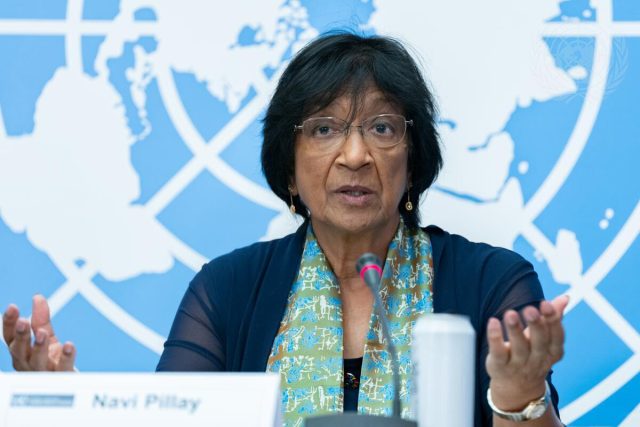
The American Human Rights Council (AHRC) joins all peace- and justice-loving people in welcoming the findings of the United Nations Human Rights Council’s Independent International Commission of Inquiry on the Occupied Palestinian Territories, including East Jerusalem, and Israel. In its newly released 72-page report, the Commission concluded that Israel has committed and continues to commit acts of genocide against Palestinians in Gaza.
This report, considered the most authoritative UN assessment to date, stems from an ongoing, independent investigation launched by the Human Rights Council in 2021. The Commission determined that Israel has committed four of the five genocidal acts defined under the 1948 Genocide Convention since initiating its military campaign in Gaza on October 7, 2023. These acts include:
According to the report, over 65,000 Palestinians have been killed, with thousands more missing or trapped under rubble. More than 100,000 have been injured, many with life-altering disabilities, including a high rate of amputations among children and youth.
The Commission documents Israel’s systematic targeting of civilians, residential areas, schools, hospitals, journalists, rescue workers, and healthcare personnel. It also highlights the weaponization of essential resources—such as food, water, and medical aid—as part of a deliberate strategy to destroy Palestinian society.
These findings build upon the UN’s August 2025 declaration of famine in Gaza, based on data from the Integrated Food Security Phase Classification (IPC), which revealed extreme food deprivation, acute malnutrition, and widespread starvation.
The Commission’s conclusion places a moral and legal imperative on the United Nations and the international community to act swiftly to end the genocide and hold Israeli leadership accountable. Despite mounting evidence, Israel continues to reject the findings, deny responsibility, and operate in defiance of international law.
The genocide must be stopped by all means necessary. AHRC calls for urgent global action to end the genocide and for building a new order founded on peace and justice.
Forbes Middle East has released its third annual list of the region’s sustainability leaders, recognizing the executives driving sustainable initiatives and impact across the Middle East’s largest industries.
This year’s Sustainability Leaders 2025 list highlights 126 executives spearheading sustainability strategies across 15 industries: banks, energy and utilities, food and agriculture, investment and holding companies, financial services, family businesses, healthcare, manufacturing and industrials, oil and gas, real estate and construction, renewable energy, telecom, transport and logistics, travel and tourism, and waste management. The list features CEOs, chairpersons, and chief sustainability officers.
For this year’s ranking, Forbes Middle East gathered information from questionnaires, sustainability or ESG reports, official disclosures, and recent news. Each sector was assessed separately, and initiatives were horizontally compared with special weight given to sector-specific efforts. The UAE leads with 67 entries, followed by Saudi Arabia with 23 and Egypt with 12.
In the past year, the region’s major players have reported strong progress: Masdar’s portfolio grew by 62%, reaching 51 GW; Emirates Global Aluminium reached 50% completion of the UAE’s largest aluminium recycling facility; Vodafone Egypt achieved 100% renewable on-grid electricity across its operations; and Infinity Power advanced toward its 10 GW renewable capacity target with new wind and solar projects across Africa.

In the presence of President of the Islamic Republic of Mauritania, Mohamed Ould Cheikh El Ghazouani, His Excellency Sultan bin Abdulrahman Al-Marshad, CEO of the Saudi Fund for Development (SFD) participated in laying the foundation stone for the King Salman bin Abdulaziz Al Saud Hospital in Mauritania. The event was also attended by Prime Minister Mokhtar Ould Diay of Mauritania; Dr. Abdallah Sidi Mohamed Weddih, the Minister of Health of Mauritania; Sid’Ahmed Ould Bouh, Minister of Economy and Finance in Mauritania; and Dr. Abdulaziz bin Abdullah Al-Raqabi, The Saudi Ambassador to Mauritania.
The landmark project, valued at USD 70 million, aims to enhance Mauritania’s healthcare sector, particularly in the capital Nouakchott, which is home to a significant portion of the country’s population. The new hospital, with a planned capacity of 300 beds and multiple specialist departments including emergency, maternity, pediatrics, intensive care, nephrology, surgery, and diagnostic laboratories, will address the growing demand for advanced medical services. It will also serve as a national referral center supporting 15 hospitals across the country, easing pressure on existing facilities.
In addition, the facility will function as a teaching hospital, providing training and qualification programs for medical professionals, and building sustainable national healthcare capacity. The hospital complex will also include accommodation for 50 doctors, ensuring that skilled staff can be retained and supported on-site.
The visit also included the signing of an agreement under which SFD will fund nearly 40 solar-powered wells through its Saudi Program for Drilling Wells and Rural Development in Africa. This program has provided potable drinking water to over 4.5 million people across the continent, improving health outcomes and livelihoods in rural communities.
Since its inception, SFD has financed more than 20 projects in Mauritania through concessional development loans totaling over USD 665 million. In addition, the Government of the Kingdom of Saudi Arabia, through SFD, has provided grants exceeding USD 172 million. These projects are aimed at fostering social development and supporting sustainable economic prosperity in the country.
The RLC Global Forum has confirmed Riyadh as the host city for its flagship 2026 meeting, taking place on 3 and 4 February under the strategic theme “Growth Crossroads.” As the leading cross-sector platform for the global retail and consumer-facing industries, the Forum will bring together CEOs, policymakers, investors, and innovators from around the world to explore where growth is emerging and how to navigate it amid profound shifts in markets and technologies.
The announcement follows a record-breaking 2025 edition, which convened over 2,000 senior leaders from 42 countries and generated tangible outcomes across cross-border commerce, grocery retail, luxury, technology, and innovation.
The 2026 program will bring together regional and global leaders to focus on:
As the Gulf emerges as a center of gravity for retail innovation and investment, the Forum strengthens its global commitment to multilateral dialogue and cross-market collaboration, connecting growth hubs from the Global South with established economies to build a more resilient and inclusive future.
RLC 2026 will convene top decision-makers and innovators from around the world, including:
“In a world that’s being rewired, the pursuit of growth has never been more strategic,” said Panos Linardos, Chairman of RLC Global Forum. “By selecting Riyadh once again, we are placing the Forum at the center of a region driving new forms of growth and exploring how these emerging hubs connect with established markets to shape the future of retail and trade.”
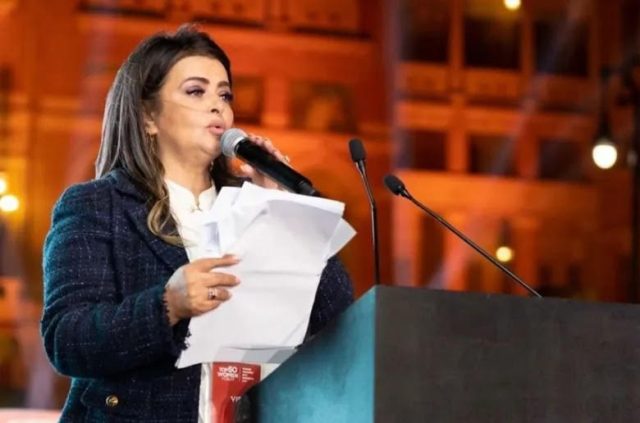
The Forum of the 50 Most Influential Women, under the patronage and in cooperation with the National Council for Women, announces the launch of the fourth edition of the Egyptian Women’s Summit, held this year under the theme:
“The Future of Women in Science, Technology, and Innovation”
(STEM and Future Innovation Summit).
This fourth edition is considered the most prominent event in the region, evolving from a national activity into a high-level regional and international platform. It attracts more than 6,000 female leaders from Egypt, the Arab world, and Africa, alongside senior officials, policymakers, leaders of public and private institutions, and representatives of international and regional organizations, as well as youth delegations from public and private universities.
The summit focuses on the role of women in the fields of science, technology, engineering, and mathematics (STEM), linking them with innovation and entrepreneurship. The aim is to empower young female leaders to keep pace with the demands of the digital era and strengthen women’s presence in the knowledge economy and future technological transformations up to 2035.
The event’s agenda includes high-level ministerial sessions bringing together decision-makers and officials concerned with women’s issues and development.
• Specialized training workshops on innovation and entrepreneurship will provide new generations with opportunities to learn from inspiring leaders.
• The summit will also host the second edition of the Employment Forum for Girls and Fresh Graduates, with major private sector companies participating to offer direct job and training opportunities.
• For the first time, the official announcement of the Top 50 Most Influential African Women 2025 list will be made during the African Women Awards ceremony. This strategic step enhances Egypt’s position as a bridge for regional and international communication and affirms its role in leading women’s development movements across Africa.
Dina Abdel Fattah, Founder and Chairwoman of the Top 50 Most Influential Women Forum, stated:
“The Egyptian Women’s Summit has become a leading regional platform that reflects Egypt’s successful experience in empowering women and opens new horizons for cooperation among Egyptian, Arab, and African female leaders. This edition places women at the heart of digital transformation and cements Egypt’s role as a key supporter of female leadership and entrepreneurship across the continent.”
She added:
“Launching the Top 50 Most Influential African Women Awards from Cairo is a strategic step that transforms the summit into a permanent international platform. It gives the continent an opportunity to spotlight its most influential female leaders in technology, innovation, and leadership.”
The summit thus consolidates the international standing of the Top 50 Most Influential Women Forum as a unifying platform for exchanging expertise and building strategic partnerships—not only at the national level but across Africa and the Arab world. It affirms that Egyptian, Arab, and African women are not just part of the change, but at the forefront of leading it, from university classrooms to top management positions
EFG Hermes, an EFG Holding company and the leading investment bank in the Middle East and North Africa (MENA) region, announced today that it acted as a financial advisor to Vision Invest on its landmark investment in Arise Integrated Industrial Platforms (Arise), one of Africa’s largest private infrastructure transactions to date.
The transaction, which involved a total capital raise of USD 700 million, welcomed Vision Invest, a leading Saudi Arabian investor and developer of infrastructure assets, into Arise’s shareholder base alongside the continued support of existing institutional shareholders. The raise underscores the company’s rapid expansion from a single-country operator in 2020 to its current presence across 14 African markets.
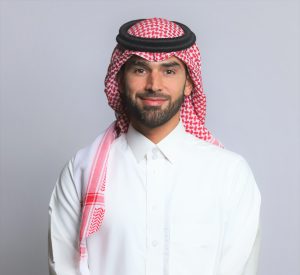
Saud Altassan, CEO of EFG Hermes KSA, commented, “EFG Hermes is proud to support leading Saudi investors in executing landmark transactions beyond the Kingdom. Our partnership with Vision Invest underscores our commitment to enabling KSA capital to access high-quality opportunities abroad, creating long-term value while reinforcing the Kingdom’s global investment footprint.
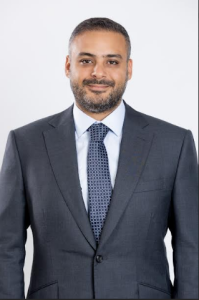
Commenting on the transaction, Karim Meleka, Co-Head of Investment Banking at EFG Hermes said, “We are proud to have advised Vision Invest on this landmark transaction, one of the largest private infrastructure capital raises in Africa. This deal underscores both the appetite of leading institutional investors for high-quality assets and EFG Hermes’ unrivalled ability to execute complex cross-border transactions. We look forward to supporting Vision Invest as it continues to grow its global footprint.”
Since the beginning of the year, EFG Hermes has advised on 4 M&A transactions, 9 DCM, and 8 ECM transactions across the region, including landmark transactions in Saudi Arabia, UAE, and Egypt, underscoring its leadership in regional markets.
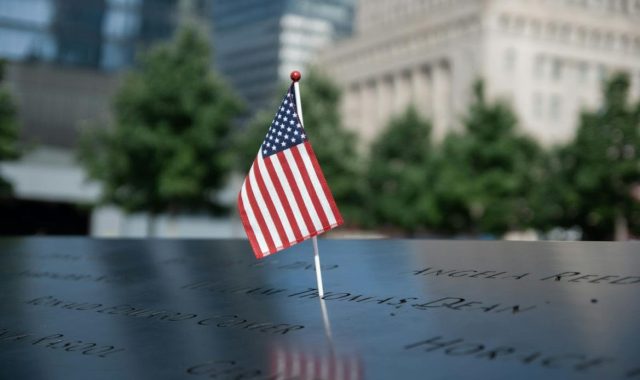
The American Human Rights Council (AHRC-USA) joins the nation in solemn remembrance of the horrific terrorist attacks of September 11, 2001. This 24th anniversary is a powerful reminder that terrorism—whether domestic or international, individual, or state-sponsored—is a common enemy of all believers in human rights.
This year’s commemoration coincides with another tragic event: the brutal killing of Mr. Charlie Kirk, a conservative activist, who was fatally shot while speaking at Utah Valley University on September 10, 2025. His murder is a stark and painful reminder that though hate, and political violence constitute a fundamental problem. No disagreement, ideological divide, or political stance—whether from the far left or far right—can ever justify such an act.
Both the September 11 anniversary and the killing of Mr. Kirk reaffirm our collective responsibility to uphold and protect the core values of freedom of speech, civil discourse, and democratic principles. Mr. Kirk’s death occurred amid a deeply polarized and toxic political climate, underscoring the urgent need for unity and vigilance.
AHRC unequivocally condemns the killing of Mr. Kirk and calls on all Americans to reject hate and resist efforts to divide us. In doing so, we honor the memory of all those who perished on September 11 and reaffirm our commitment to a more just, peaceful, and united nation.
“There is absolutely no excuse for political violence,” said Dr. Ahmed Ghanim, community leader and activist. “This is not the time to take cheap political shots at political opponents. It is time for everyone- left or right- to come together and condemn such violence,” continued Dr. Ghanim. “The moment we resort to violence to resolve political differences is the moment we lose democracy,” concluded Dr. Ghanim.
“We honor the memory of September 11 by standing firm against hate, violence, and division. The killing of Charlie Kirk is a tragic reminder that our democracy depends on protecting every voice—even those we disagree with,” said Imad Hamad, AHRC Executive Director.